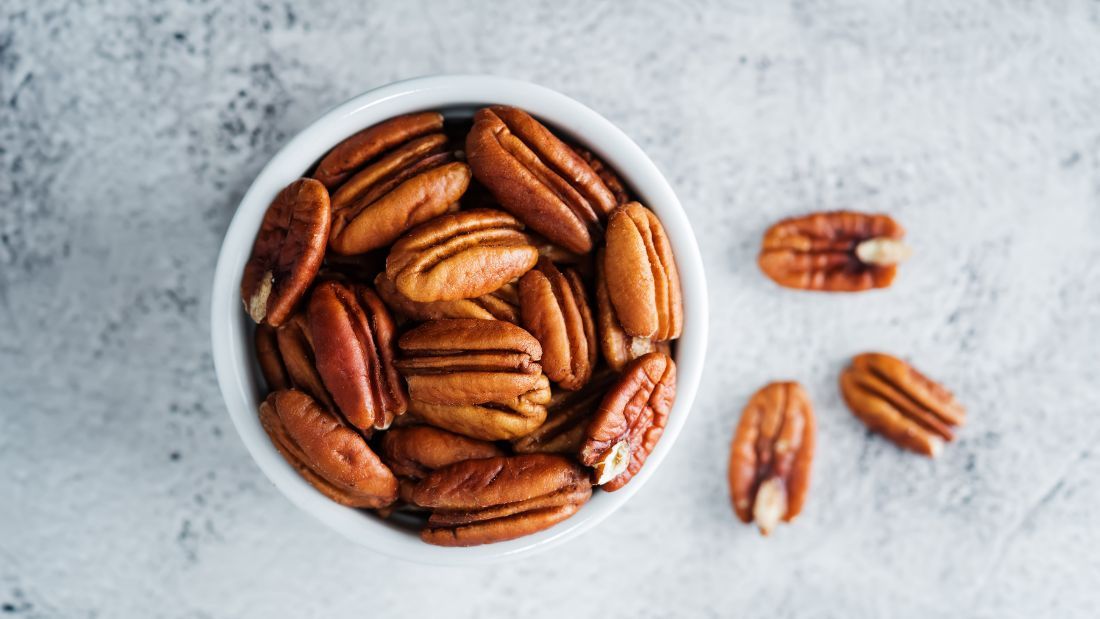Pecans

The pecan tree is native to the southern United States and northern Mexico and it’s cultivated for its nuts across these states.
Nutrition
Pecans are delicious but, perhaps surprisingly, they aren’t a rich source of many essential nutrients. The only exception is manganese, which is a mineral we need for healthy bones, skin, cartilage, nervous system and in sugar metabolism. It also plays a key role in protecting our cells and tissues from damage and keeping the immune system strong.
Most of the fats pecans contain are monounsaturated – not essential but not harmful either. Pecans also offer small amounts of B group vitamins and vitamin K. Some people think pecans are a good source of vitamin E but while they do contain some, they are not a particularly rich source. However, they contain one specific form of vitamin E that isn’t used by the body as a vitamin but is a strong antioxidant and helps to prevent cholesterol in your blood from oxidising and becoming dangerous, which means eating pecans is good for your heart!
Sustainability
Pecan orchards are fairly sustainable but some rely heavily on pesticides so organic pecans are always a better choice. As pecans are only rarely cultivated in Europe, virtually all pecans on the European market are imported from the Americas and so come with transport emissions. However, there are no other major ethical issues with pecans so you can enjoy a pecan treat now and then.
For culinary inspiration, see our Vegan Recipe Club’s pecan recipes!




